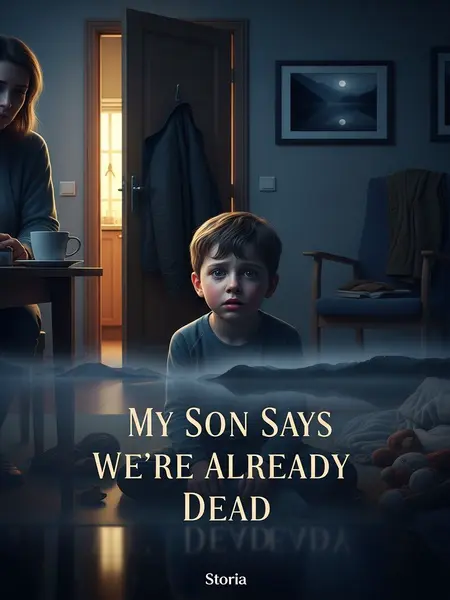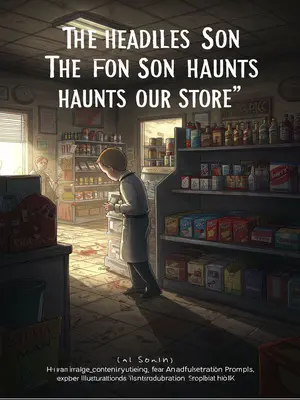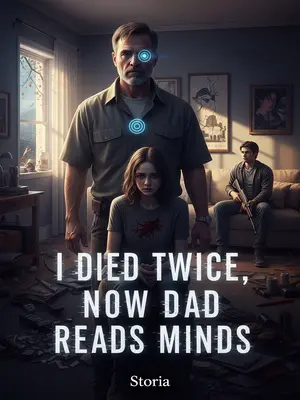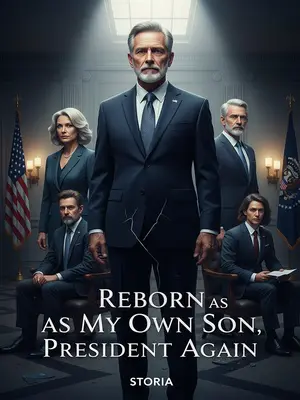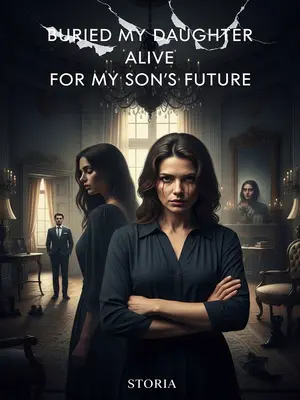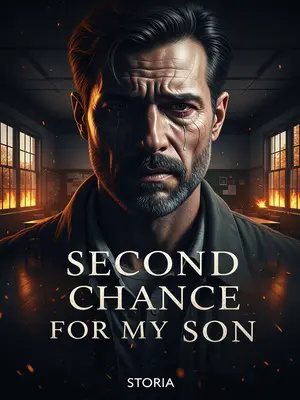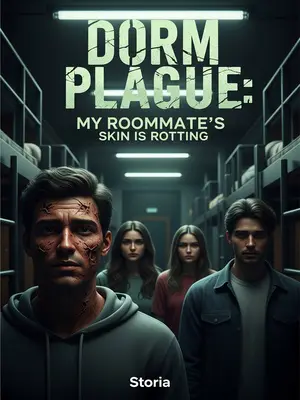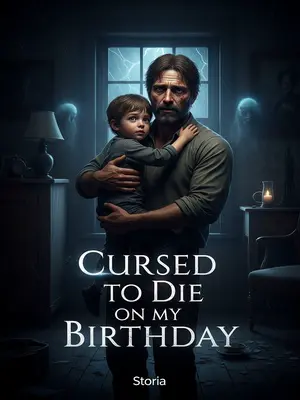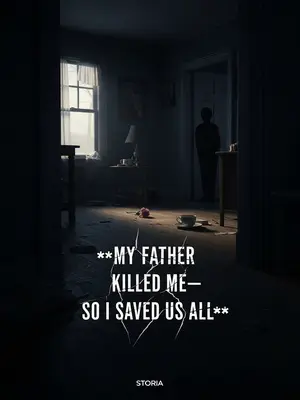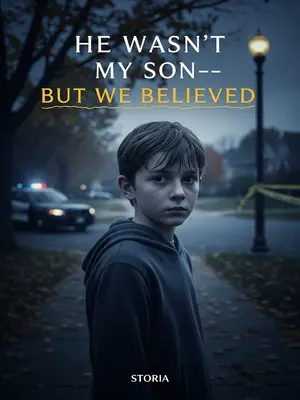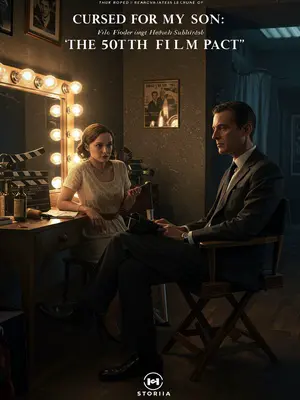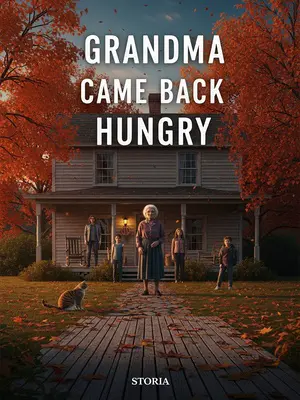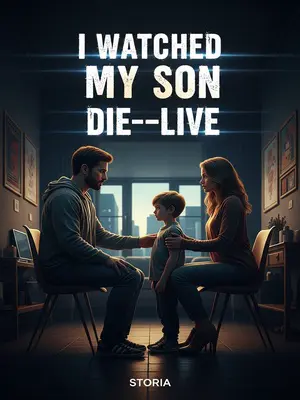Chapter 2: The Mirror
2
But now, Evan’s odd behavior didn’t seem tied to Angel’s Bath. Why did he think we never blinked?
Lillian gently patted his back, murmuring comfort until his sobs faded. She wiped his cheeks and asked softly, "Evan, when did you first notice Dad and I weren’t blinking?"
"Wednesday," he said, voice small.
Wednesday—the second day after we’d come home. Today was Saturday. That meant he’d watched us for four days, convinced we hadn’t blinked in almost a hundred hours.
But it wasn’t just blinking—he said we even slept with our eyes open, like we never closed them at all.
Blinking is automatic. You can’t just stop. If you go even two minutes without blinking, your eyes sting. Days? That’s impossible for anyone alive.
No wonder Evan was terrified.
Lillian took his hand, pressing it gently against her left eyelid, then blinked hard. Her lashes brushed his palm—long and thick, impossible to miss.
Evan stared, confusion etched in his face. "Mom, did you only move your left eye?"
No—she’d blinked both eyes. He’d felt the blink, but didn’t see it.
"Let him cover his right eye and try," I suggested.
Lillian repeated the motion. Same result. He could feel it, but not see it.
Lillian and I exchanged a look—half worry, half disbelief. Under the table, I squeezed her hand. She tried a nervous laugh, but it died quickly in the silence.
At first, I wondered if this was a prank. Evan’s pulled stunts before—pretending to choke, faking a fall. But after we caught him, he’d stopped.
And this time, his behavior—creeping into our room at two or three a.m., just standing and staring—didn’t feel like a prank at all.
For a kid who never sits still, staying up late just to pull a trick? Unlikely.
"Evan, blink your eyes," I said.
He started blinking hard, scrunching his whole face with the effort. His hands fidgeted in his lap, eyes darting between us, lips pressed tight. "Dad, did you see it?"
"I see it, I see it. You can stop now," I reassured him quickly.
He started to tremble, then broke down again, crying even harder. "But I can’t see it! I can’t see myself blink in the mirror!"
That’s normal—no one can. We explained patiently, even recorded a video of him blinking to show him.
But after watching, he completely lost it, sobbing, pointing at the phone. "I didn’t blink! I’m going to die! Dad and Mom are going to die too!"
The phone slipped from my hand, landing face-up on the rug, his reflection frozen mid-sob. I knelt, arms out, but he shrank away, shaking, refusing comfort from either of us.
3
All the fear Evan had bottled up exploded at once. No matter what we tried, he wouldn’t calm down.
Kids his age don’t usually understand death—not really. But right now, I didn’t care why. I just needed him to stop crying.
The longer he screamed, the more irritable I felt. A hot, electric jolt shot through me, so sudden it scared me—like I was standing outside my own body, watching my hand move on its own. For a split second, I wanted to cover his mouth, to silence him, no matter what.
My hand was halfway to him before I jerked away, horrified. I leapt up, flexing my fingers, my skin prickling with cold. My wedding ring felt like ice.
"Marcus! Are you deaf? Come help Evan!" Lillian snapped, her voice sharper than usual.
How could I go near them now? But Evan was sobbing so hard he could barely breathe.
In desperation, I grabbed my phone and dialed 911.
The operator sounded confused. "Sir, is your son breathing? Is he in immediate danger?"
My voice cracked as I answered, "He’s—he’s breathing, but he won’t stop crying. Please, I don’t know what else to do."
She talked me through some first aid, and after a while, Evan’s sobs slowed. Still, I asked for an ambulance.
While we waited, Lillian finally soothed him enough to stop the tears. The living room fell oppressively quiet. We sat in silence until the siren wailed outside and paramedics knocked at our door. Evan hid behind Lillian’s legs, peeking out like the world itself was dangerous now.
At the hospital, the pediatrician listened to our story, ran tests—everything normal. During the wait, Evan stared at every face that passed, checking, I realized, to see if anyone else blinked. But after half an hour, he stopped looking up at all, silent as a ghost.
The doctor suspected something psychological. We got referred to the children’s mental health clinic.
I felt crushed by guilt, desperate to make it up to Evan. I promised him toys, snacks, anything he wanted. Lillian frowned but said nothing. Maybe she thought we’d pushed him too hard—both of us teachers, maybe too strict, too much pressure.
After more than two hours, the psychologist asked Lillian to take Evan out, leaving me alone. She said, "We’ve looked at everything, and honestly, Evan seems like a healthy, imaginative kid. Sometimes, weird things just stick with them."
But Evan’s story was different from ours. He said he hadn’t seen the whirlpool—he’d seen a giant eye, and he’d made eye contact with it.
After the whirlpool, we’d stayed in my hometown for another ten days. Evan was fine then. The symptoms started only after we left the mountains.
The psychologist thought Evan saw the whirlpool as an eye because of the moon’s reflection—sometimes, from a certain angle, it really did look like an eye with a white pupil. It was all about perspective.
There was no medication. The doctor said the symptoms should resolve on their own.
I was relieved. But things didn’t go as planned.
4
Evan didn’t want to go to the mall. He went straight home, locked himself in his room, and ignored us. The house felt hollow, his toys abandoned, laughter gone. Lillian and I tried everything—movies, amusement parks, playdates—but he stayed silent, as if he’d turned into a doll.
This lasted until the third night. He came to our bedroom, put his hand under our noses, and after ten seconds, ran out like he’d seen a ghost. I found him hiding in his room, the door locked.
I spent the night in the living room, watching the microwave clock crawl, the fridge humming, streetlights flickering through the blinds. I replayed the scene in my head, over and over.
I checked the bedroom security footage—the camera we’d installed just to monitor Evan. Only then did I realize why he’d come to our room.
The next morning, we decided to take him to the hospital again. But at breakfast, Evan said calmly, "I don’t breathe anymore. Neither do you. We’re all dead."
The tension in the house snapped. Lillian slammed her bowl down, milk splashing. "If you keep this up, young man, you’re grounded—no TV, no PlayStation, nothing!" Then she hurled the bowl, ceramic shattering against the floor. Evan didn’t flinch. Milk pooled around his chair, ceramic shards everywhere.
"Evan Marcus, if you keep acting crazy like this, don’t blame me for being harsh! Even a prank should have its limits! You really need a spanking!"
I rushed to check him for injuries. Our bowls are heavy—if they hit his head…
Sure enough, there were small cuts on his forehead. But when I wiped at the cut, expecting blood, there was nothing. Just cold, pale skin, like a wax figure.
My hands froze. I slid my palm under his nose. Ten seconds—no breath. My heart thudded. Lillian was still yelling, tears streaming down her face.
How could I comfort her? I let go of Evan, fear crawling up my spine.
"Dad, now you know I wasn’t lying, right?"
Our son—was he still our son?
The world tilted. Sunlight slanted through the blinds, dust motes swirling in the silence, and I realized I hadn’t heard the clock ticking in minutes. The fridge buzzed too loud. I felt as if I’d fallen through thin ice.
"What on earth… what is going on?"
Evan shook his head, calm as ever. "I don’t know either."
Lillian finally noticed my panic. She touched my arm. "Marcus, what’s wrong?"
I stared at her eyes, watching, counting—one second, a minute, two. She shifted, uncomfortable. "Marcus, what is it?"
But she didn’t—
Lillian blinked—at least, I thought she did. But in the harsh morning light, I wasn’t sure of anything anymore.
